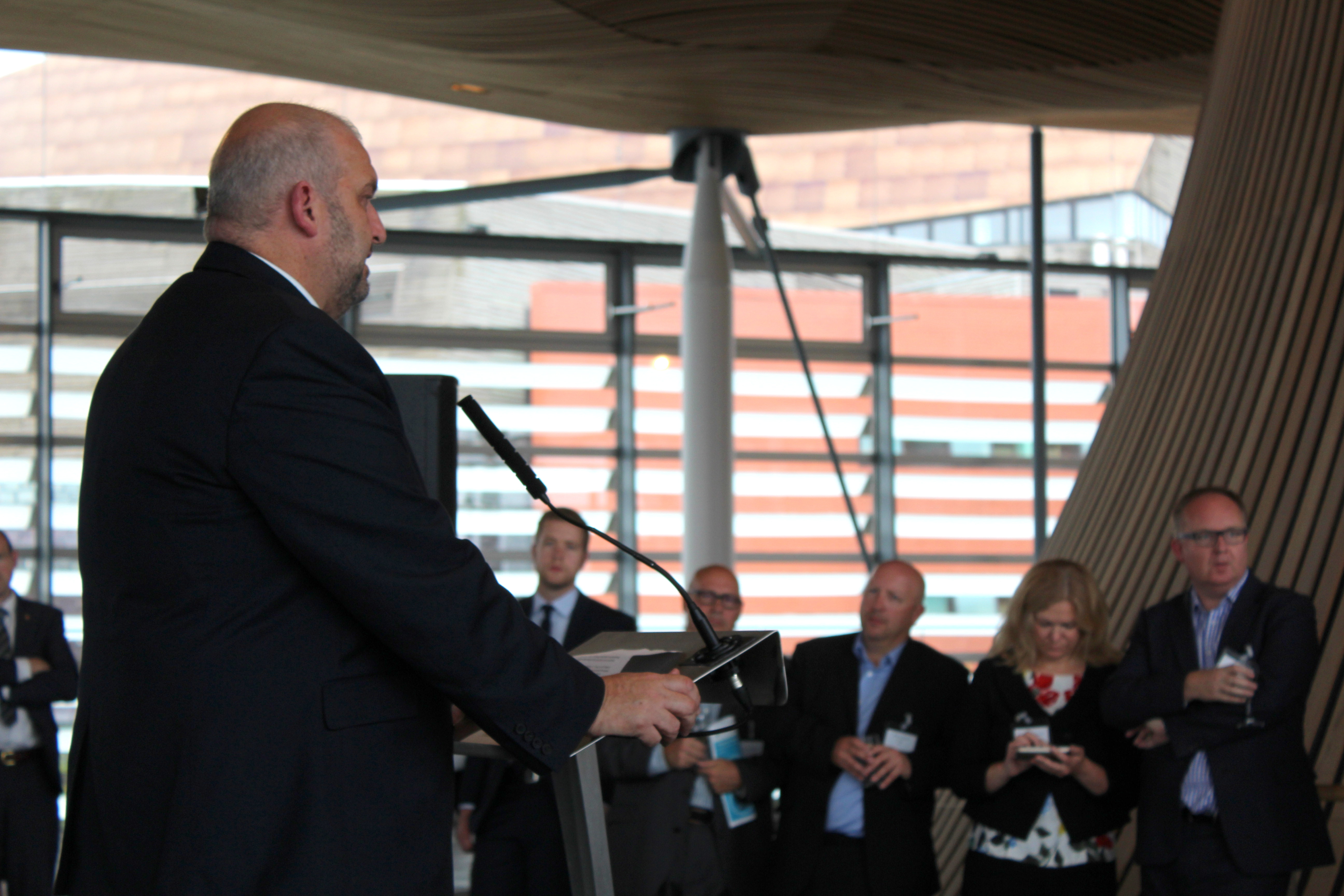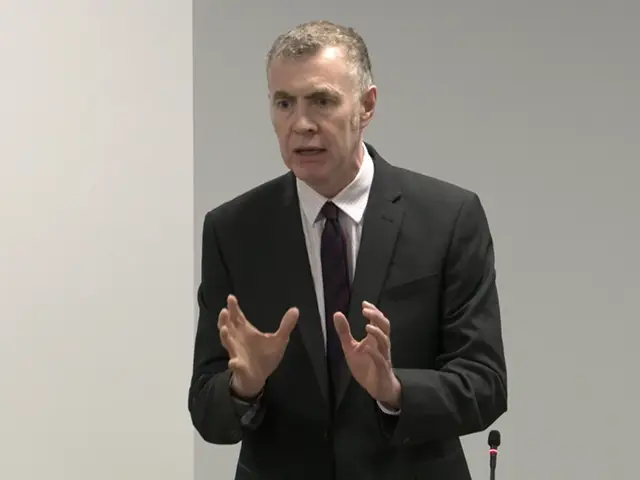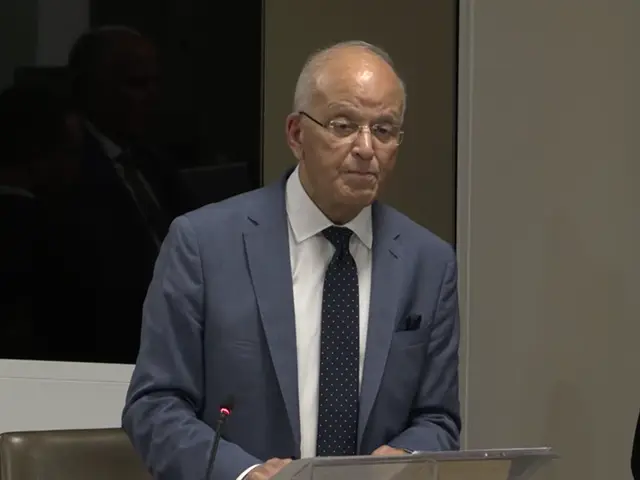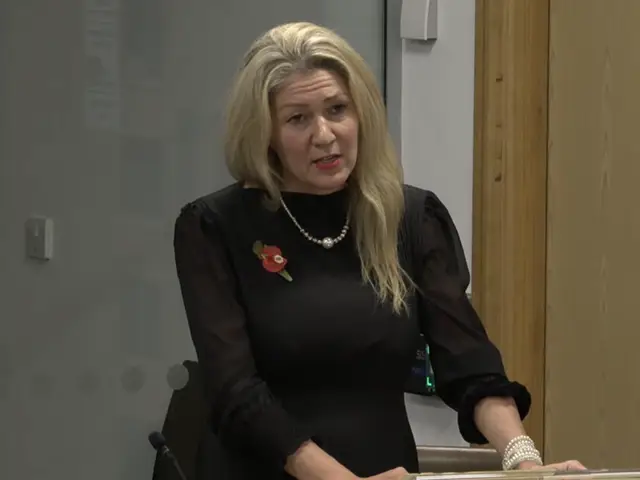Politics
Communities First had impossible task

THE WELSH Government should ensure councils identify all programmes currently being delivered by Communities First that should be delivered by other public services and that they are transferred across to the relevant public service as soon as possible, according to a National Assembly Committee.
The Equality, Local Government and Communities Committee also found it has been difficult to make an overall assessment of the success of the 15-year, £432m Communities First tackling poverty programme because of insufficient performance management.
Communities First was the Welsh Government’s flagship tackling poverty programme. The Cabinet Secretary for Communities and Children Carl Sargeant AM announced that the programme would be wound down in February this year.
The report also highlights that uncertainty for staff caused by the way in which the announcement was made has had a detrimental impact on their work, and affected the people using the services.
The Committee also recommend that the Welsh Government outline how long legacy funding will be available for as soon as possible.
Committee Chair John Griffiths AM said: “For many people, Communities First has had a life-changing impact, and we know it has done great work in communities across Wales.
“We are concerned that the Welsh Government must learn lessons for future tackling poverty activities, ensuring progress is measurable, based on evidence of what works, and that the successful elements of Communities First, which could be delivered by other public bodies and are valued locally, are transferred to other public services to deliver.
“The need for these services hasn’t disappeared, but faced with uncertainty, we have heard that Communities First staff are already leaving for other jobs. Their expertise and relationships cannot easily be replaced.”
A key criticism in the report is that the Welsh Government had no baseline from which to assess success and without such a measure, it was impossible for Communities First’s successes – if any – to be adequately measured as delivering anything like value for the money invested in the scheme.
Evidence from Carmarthenshire County Council not only makes that criticism express, but continues: ‘Measuring the long term impact that the programme had on the individuals was not carried out in the initial years of the programme. As a result, there was limited recording of statistics and outcomes achieved during this period’.
Indeed, the committee states that its own work was hampered by lack of transparency by the Welsh Government. ‘On the day that it was announced the programme would definitely be ending (14 February 2017), all performance measurement data was removed from the Welsh Government’s website’.
The report mordantly notes that: ‘However, we were told in very stark times by a witness that having 102 performance indicators means in practice you have no performance indicators’. It goes on to warn that new indicators put in place by the Welsh Government are so broad as to be almost meaningless and recommends that the Welsh Government adopt the approach recommended by the Bevan Foundation, a social welfare think-tank.
The report notes that the Communities First programme was set the ‘near impossible task’ of reducing poverty, which could never be achieved through one single programme.
In written evidence to the Committee, the Cabinet Secretary for Communities and Children, Carl Sargeant said that “….the underlying premise of the programme that it was possible to improve area characteristics by influencing individual-level outcomes – was (and remains) untested.”
In addition to the broad aims of the programme, it remains unclear and un-evidenced as to whether interventions to improve individual circumstances lead to changes in a geographical area’s characteristics. This was accepted by the Cabinet Secretary in his written evidence.
Although it is unclear how well a place based approach works and it remains the approach for some other programmes such as Communities for Work, Flying Start, Lift, and others. The committee recommends review of these programmes ‘to ensure they are working to optimum benefit’.
The Committee expresses concern that Communities First programmes were used to deliver services that statutory bodies should have delivered, noting that Communities First schemes ‘were delivering projects and support in important areas, including health and education’.
As Herald readers in Carmarthenshire will recall, it is almost impossible to conceive that a local authority would misuse funds for a targeted project to subsidise delivery of its own services.
Other recommendations include:
• That the Welsh Government considers removing postcode barriers to families accessing Flying Start where there is an identified need and capacity to support them
• That the Welsh Government ensures that all advice and guidance to local authorities is available in written form to supplement information that is provided in person or orally
• That the Welsh Government That the Welsh Government makes it clear in guidance to local authorities that employability support should encompass all stages of the employment journey, including support to a person once they are in employment
Mark Isherwood, the Conservative spokesperson for Communities, joined in the Committee’s criticism.
“Despite repeated warnings, the Welsh Government has failed to deliver what the Communities First programme originally intended, which was to deliver community ownership and empowerment to drive positive change.
“An article by the Bevan Foundation achieved a far more perspicacious insight into why Communities First achieved such little success, by stating that community buy-in is essential and that if people feel that policies are imposed on them, then policies simply don’t work. The Cabinet Secretary should take note.
“However, it is not too late to do things differently. We can still unlock human capital in our communities and places to develop solutions to local issues, improve wellbeing, raise aspirations and create stronger communities.”
The Bevan Foundation has welcomed the recommendations of the Equality, Local Government and Communities Committee’s report.
In particular, it welcomes the Committee’s inclusion of the Bevan Foundation and Joseph Rowntree Foundation’s proposals to reduce poverty through a whole government strategy for reducing costs and raising incomes, rather than its current focus on employability, early years and empowerment.
The Bevan Foundation also welcome’s the Committee’s adoption of other Bevan Foundation proposals including:
• The recommendation that the Welsh Government work with the Bevan Foundation and Joseph Rowntree Foundation on a dashboard of indicators,
• The recommendation that the Welsh Government explore further the role of assets in generating income and wealth
• The comment that the Welsh Government needs to provide a robust framework for local action
Director of the Bevan Foundation, Victoria Winckler, said: “We were delighted that the Equality, Local Government and Communities Committee has listened carefully to our written and oral evidence and included so many of ideas in its recommendations. The Committee’s inquiries into poverty are vitally important, and we hope that the Welsh Government heed the Committee’s recommendations. We look forward to working with the Welsh Government and the Committee in taking them forward.”
News
UK government boosts Port Talbot transition fund with extra £22m support

AN EXTRA £22 million in UK Government funding has been announced to support workers and businesses affected by Tata Steel’s transition at Port Talbot, taking the total community support package to £122 million.
The funding uplift means the Tata Steel / Port Talbot Transition Board fund now stands at £102 million from the UK Government, alongside a further £20 million contributed by Tata Steel. Ministers say the additional money could help support up to 1,000 more jobs across the local economy.
Since July 2024, the Transition Board has already allocated £80 million to the Port Talbot area, funding thousands of training courses for individuals and helping nearly 200 businesses to start, expand, invest in new equipment and move into new markets.
The UK Government said the rapid deployment of the funding has helped prevent an increase in unemployment benefit claims during Tata Steel’s shift towards greener steelmaking.
Following strong demand for support, a further £22 million has now been allocated, extending the availability of Supply Chain, Business Start-Up, Resilience and Growth funding into 2026. The announcement was made on Thursday (Dec 18).
Secretary of State for Wales Jo Stevens said the government was determined to continue backing the community through the transition.
She said: “This government has acted decisively to support workers and businesses in Port Talbot, allocating the entire £80 million in initial funding quickly into the community to ensure that whoever needed support could access it.
“Grants have been delivered swiftly to meet the needs of local people, businesses and communities, and there is evidence that our approach is working. But we want to make sure that as many people as possible have continued access to support with the extra £22 million for local businesses into the new year.
“We said we would back workers and businesses affected by the transition at Port Talbot and are delivering on that promise.
“It remains a difficult time for Tata Steel workers, their families and the community, but we will continue to support them.”
Ms Stevens announced the funding increase during a visit to Port Talbot-based engineering firm JES Group, which has received Transition Board support. She also toured the JES Academy, which is providing training for dozens of former and current steelworkers.
Justin Johnson, Director of JES Group and The Skills Academy, welcomed the announcement.
He said: “I want to express our gratitude to the UK Government for establishing the original Transition Fund and for now having the foresight to increase the level of support at such a critical moment.
“This uplift will make a significant difference to supply-chain companies like ours. As Tata Steel transitions to electric arc furnace steelmaking, businesses like JES must transition alongside it, while also diversifying into new sectors to reduce reliance on what was once our core work.
“We believe the history of steelmaking in Port Talbot is far from over and that a brighter, greener future lies ahead, but while that future takes shape, diversification is essential.
“The journey has not been easy, and it is far from over, but this additional support creates real opportunities for stability and growth. I also want to recognise Business Wales and Neath Port Talbot Council’s economic development team for their guidance and practical assistance.”
The Transition Board was established to protect jobs and the local economy during Tata Steel’s move to greener steel production. Information on applying for support is available via the Tata Steel Transition Information Hub.
The UK Government has also committed £2.5 billion to rebuild and decarbonise the UK steel industry, with a national Steel Strategy due to be published in early 2026. This includes £500 million already allocated to Tata Steel for the electric arc furnace now under construction at Port Talbot.
Politics
Debate over single Welsh police force reignited amid merger reports

THE PROSPECT of merging Wales’ four police forces into a single mega-force has resurfaced, as politicians scrambled to respond to reports of an overhaul of policing in the new year.
Adam Price raised reports that Home Secretary Shabana Mahmood is considering cutting the number of police forces in Wales and England from 43 to 12 through mergers.
The former Plaid Cymru leader told Senedd members the reforms would represent the “biggest upheaval” of police forces since the 1960s.
Warning the Welsh Government was not consulted on plans to scrap police and crime commissioners, he said: “No change should happen – a merger for example – without full Senedd scrutiny and a Welsh democratic mandate.”
Mr Price suggested an all-Wales model – merging the four police forces, similar to what happened in Scotland in 2013 – could have benefits but said governance would be critical.
During topical questions on Wednesday December 17, he argued a single police force would need to be accountable to the Senedd, with powers over policing devolved to Wales.
The MP-turned-Senedd member urged the UK Government to rule out any cross-border mergers involving a Welsh force being absorbed into an English one.
Responding for the Welsh Government, Jane Hutt described the widespread media reports as “unhelpful, unconfirmed speculation”. But she confirmed the UK Government is expected to publish a white paper in the new year.

She committed to engaging with Sarah Jones, the UK policing minister, who was attending a meeting of the Welsh policing partnership board the next day (December 18).
Ms Hutt told the Senedd she has been assured the UK Government recognises the differing governance arrangements between Wales and England.
Conservative Altaf Hussain urged the Welsh Government to take the opportunity to abandon calls for devolving powers over policing and justice to Wales.

Dr Hussain said: “There is merit in having a single unified police force for England and Wales – if only to tackle dysfunctional forces like Gwent Police, who have allowed a culture of misogyny to persist amongst their officers and leaders.”
Ms Hutt suggested reforms would present a natural opportunity to consider the role of the Welsh Government and Senedd in terms of accountability for policing in Wales. She said the focus is on a phased approach, beginning with powers over youth justice and probation.
Jane Dodds, the Liberal Democrats’ leader in Wales, called for a clear timetable for the devolution of youth justice and probation. “We need more devolved powers,” she said.
Labour’s Alun Davies agreed, accusing UK ministers of putting Ms Hutt in an “invidious position” of responding to hearsay about a fundamental public service. He said: “This is the second time in two months… this simply isn’t good enough.”

Mr Davies criticised Labour colleagues in the UK Government for “clearly” not recognising calls for policing to be devolved and biting the bullet. “That needs to happen,” he said, adding: “It needs to happen as soon as possible.”
The former minister told the Senedd: “We certainly don’t want to see the nationalisation of policing that’s just been proposed by the Conservatives. We’ve never had a national police force in the UK – we don’t want one today.”
It was “groundhog day” for the Conservatives’ Mark Isherwood who reminded the chamber of the then-Assembly’s review of policing in 2005 when mergers were floated previously.
He said: “To recognise the regional cultural and geographical differences that exist within Wales, all agreed that Wales must be policed in regions.”
But Rhys ab Owen, who sits as an independent, argued Wales’ four police forces “make no sense at all” with Police Scotland showing a unified force can “flourish”.
Politics
Support for £27bn spending plans amid uneasy compromise

THE SENEDD has backed the Welsh Government’s “imperfect” £27bn draft budget following a late deal to prevent a “catastrophe” for public finances.
The 2026/27 spending plans passed with 24 in favour, 13 against and Plaid Cymru’s 13 members abstaining as part of a near-£300m deal with the Welsh Government. Ministers will unveil the final budget in the new year before a further crunch vote on January 27.
But scrutiny committees warned inflation based on “outdated” forecasts could see real-terms cuts, criticising a lack of preventative spending and “business as usual” funding for culture.
Leading scrutiny on December 16, Peredur Owen Griffiths, who chairs the Senedd’s finance committee, sounded the alarm about inflation figures underpinning the draft budget.
He warned that while health and councils would receive uplifts, these were based on forecasts from March that are already outdated.
Calling on ministers to publish an assessment of inflationary pressures alongside the final budget, he said: “Some areas face real-terms cuts unless funding increases.”
The Plaid Cymru politician also urged the Welsh Government to develop a plan to close a “persistent productivity gap” compared with the UK average.
Peter Fox, the Conservative chair of the health committee, said the NHS initially faced a “historically low” uplift of only 0.5% in real terms before the deal was struck.
Mr Fox made a compelling case for extra funding for “vital” palliative and end-of-life care services as well as more money for respite care for unpaid carers.

While welcoming an extra £180m for health and social care, he warned of a system buckling under pressures in relation to waiting times, staffing and an ageing estate.
“It’s essential to balance these short-term demands with longer-term transformation,” he said, calling for assurances funding for prevention is not lost to immediate firefighting.
This sentiment was echoed by Delyth Jewell, the Plaid Cymru chair of the culture committee, who lamented that the arts sector faces another year of “more of the same” real-terms cuts.
She pointed out that spending on culture in Wales ranks among the lowest in Europe.
Llŷr Gruffydd, chair of the climate change committee, raised concerns about infrastructure, pointing to the transport secretary’s admission that Wales has the UK’s oldest bus fleet.
Mr Gruffydd also criticised cuts to biodiversity, noting a 3.9% fall in day-to-day resource spending and an 8% reduction in longer-term capital funding amid a “nature emergency”.
Meanwhile, John Griffiths, who chairs the local government committee, welcomed a minimum 4% increase for councils but warned “frustrations continue” over the funding formula, which relies on data from the 1991 census.

He said: “We remain concerned that local authorities are still in a vulnerable position and continue to face the prospect of council tax rises, service cuts and job losses.”
His Labour colleague Buffy Williams, chair of the education committee, warned ministers failed to publish a specific children’s rights impact assessment for the 12th year in a row.
Heledd Fychan, Plaid Cymru’s shadow finance secretary, defended her party’s decision to abstain, arguing rejecting the budget could have led to thousands of job losses, council tax rises of 22% and the “very real prospect of bankruptcy for some of our councils”.
“This was a budget that, if it was left unamended, would have proved catastrophic for Wales,” she said, dismissing suggestions Plaid Cymru was “propping up” Labour.
But her Conservative counterpart Sam Rowlands criticised the budget as a failure that “does nothing” to get Wales’ economy moving nor get to grips with long NHS waiting lists.
Reform UK’s Laura Anne Jones added that the “cosy arrangement” between Labour and “their little helpers” Plaid Cymru “smacks of a government that has run out of ideas.”

Closing the debate, finance secretary Mark Drakeford insisted the budget deal was “good news for Welsh citizens” because the “catastrophe” of a failed budget has been avoided.
“We have secured that more ambitious set of outcomes,” he said, pointing to the £180m extra for health and social care as well as a £112m for councils as part of the deal.
-

 Crime11 hours ago
Crime11 hours agoMilford Haven man jailed after drunken attack on partner and police officers
-

 News3 days ago
News3 days agoDyfed-Powys Police launch major investigation after triple fatal crash
-

 Crime2 days ago
Crime2 days agoMan sent to Crown Court over historic indecent assault allegations
-

 Crime1 day ago
Crime1 day agoMan charged with months of coercive control and assaults
-

 Crime4 days ago
Crime4 days agoMan spared jail after baseball bat incident in Milford Haven
-

 Crime2 days ago
Crime2 days agoMilford Haven man admits multiple offences after A477 incident
-

 Crime10 hours ago
Crime10 hours agoTeenager charged following rape allegation at Saundersfoot nightclub
-

 Education7 days ago
Education7 days agoTeaching assistant struck off after asking pupil for photos of her body





















